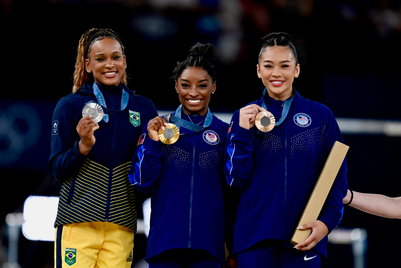
Aside from the Olympics, the FIFA World Cup is one of the only events that puts advertisers on a global stage in front of massive, live audiences – an opportunity that’s shrinking across the media landscape as viewership continues to fragment.
But this year’s soccer World Cup, set to kick off on Sunday (Nov. 20), is mired in controversy related to its host country Qatar and falls at the start of the holiday shopping period, which begins in earnest in the U.S. next week on Black Friday (Nov. 25).
This unique set of circumstances poses a question for advertisers: Is the World Cup worth the investment this year?
According to Insider Intelligence, amid inflation and the threat of a recession, advertisers are spending less overall ahead of the holidays as consumer spending projections look muted. Holiday gift spending is expected to drop by almost $30 billion this year in the U.S. as 58% of consumers report plans to cut back on non-food related costs, according to a study by e-commerce provider ShipStation.
The World Cup doesn’t garner the level of interest the Super Bowl or World Series does in the States, but its usual timing in July, when most big American sports leagues are off-season, means U.S. fans are more likely to tune in. Five million people watched the 2018 World Cup in Russia, even though the U.S. team didn’t qualify to compete.
This year, however, the tournament is taking place during the NFL season and the start of the NBA and NHL seasons – meaning more distractions for American sports fans and more live sports games for brands to advertise against.
In other parts of the world where soccer (sorry, football) is more of a religion than a sport, The World Cup falling during the holiday season was expected to lead to a double whammy of advertiser investment for broadcasters. But that hasn’t quite played out.
British broadcaster ITV saw its shares dip after forecasting a muted increase in revenues in the fourth quarter due, in part, to lower than expected World Cup investment. Those figures could be even worse if England doesn’t make it to the latter rounds of the tournament, in which case, viewership is expected to drop.
For brands that decided to advertise despite this unique confluence of factors (and there are plenty), host country Qatar poses its own tricky set of circumstances.
In addition to human rights violations in the country, where homosexuality is illegal and women face daily violence, a corruption scandal surrounding Qatar’s bid for the games and horrifying treatment of migrant workers who built the tournament’s infrastructure pose serious brand safety hazards.
Being associated with such atrocities doesn’t really jibe with Nike’s commitment to social justice, for instance, or Anheuser-Busch InBev’s mantra to “create a world with more cheers.” Yet both are advertising during the games this year, as are many others who have touted similar ideals.
Brands faced a similar conundrum during the 2022 Olympics in Beijing, which sparked a diplomatic boycott in the U.S., U.K. and Australia due to China’s human rights violations against the Uyghur Muslims and aggressive, anti-Democratic moves in Hong Kong.
But NBCUniversal still managed to bring in $920 million in revenue against its broadcast.
Live global sporting events are the last bastions of traditional advertising – but even they are becoming tricky landmines in the tense geopolitical and fraught economic times in which we live.


.jpg&h=334&w=500&q=100&v=20250320&c=1)


.png&h=334&w=500&q=100&v=20250320&c=1)




.png&h=334&w=500&q=100&v=20250320&c=1)







.png&h=268&w=401&q=100&v=20250320&c=1)
.png&h=268&w=401&q=100&v=20250320&c=1)